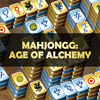Chaplain's Corner
Resurrection
Resurrection – have you seen the advertisements? Maybe you have even watched the shows. Since March 9th it has been airing on Sunday evenings on ABC. The program is based on the novel The Returned by Jason Mott and is about the “resurrection” of folks who passed away in Arcadia, Missouri. As the show unfolds, people who have died: an eight year old drowned, a wife who attempted to save the boy from drowning, and others show up years after they were buried, the same age as they were when they died.
Isn’t it strange how popular culture keeps borrowing and adopting from such sacred themes. The problem with the treatment popular culture gives to these sacred themes is that it doesn’t even begin to understand them. It simply borrows the words while abandoning the concept. This show doesn’t reflect the Christian concept of resurrection or even the Eastern concept of reincarnation. Instead it introduces another possibility. It might be called “another shot at life” or “picking up where life left off” or something like that.
Regardless of how poorly popular culture treats these sacred subjects, when they do, it peaks people’s interest. You may remember The Da Vinci Code from back in 2006. The theme had to do with the Holy Grail (in medieval legend the cup or platter used by Jesus at the Last Supper). The interest was intense and spawned controversy and outrage. This show will probably do the same because it isn’t going to reflect a traditional Christian understanding of the concept of resurrection. My casual interest comes from the fact that the central pursuit of my life has been to understand the Christian faith and the concept of resurrection is central to the core theme of the faith. Understanding my faith is often aided by seeing what those who don’t embrace it do to it. Truth is sometimes made clearer when it is put up against untruth.
This business of “redefining” words has become somewhat of a pass time in our western culture. Many of us have been dismayed at the redefinition of such words like “marriage” for quite some time. Once people are convinced that a word is defined differently, radical changes can take place, changes that quietly revolutionize society. When the redefinitions are embraced by the “church” then the revolution impacts the faith. There are many who feel that way about the word “Christianity”. It has undergone a slow but troubling redefinition from its original and historic meaning and this troubles many, myself included.
Unfortunately, when popular culture touches the sacred it always spoils it. There is something about sacred themes that will not stand for being toyed with and unfortunately, many a sacred theme has been soiled by the insistence that popular culture has to use them for its own purposes. There are many examples of this. One that comes to mind is the Leonard Cohen song, “Hallelujah”. The word is derived from the Hebrew meaning “praise God”. In the first verse one has some hope that this won’t happen in this song, but as the song develops instead of glorious praise to God it ends in defeat, resignation to depravity and an almost agnostic doubt, “Maybe there’s a God above…”.
We just can’t afford to have the sacred theme of resurrection messed with. We can’t afford to allow popular culture to subtly redefine the word and all that it represents. Resurrection is the “great hope” of the Christian Gospel. The Apostle Paul argued this towards the end of his first letter to the church at Corinth. He penned these words, “If there is no resurrection of the dead, then not even Christ has been raised. And if Christ has not been raised, our preaching is useless and so is our faith…If Christ has not been raised, your faith is futile and you are still in your sins….and we are to be pitied more than all men” (excerpts from 1 Cor. 15:12-19).
So central to the Christian Gospel is the resurrection of Jesus Christ and the promise he makes to those who believe that they too will be resurrected that if we remove this from Christianity, the Faith becomes a fool’s pursuit and those who follow it are to be pitied.
Every Christian funeral bears witness to both the resurrection of Jesus and the promised that those who die in him (having trusted in him) will be resurrected when Jesus returns again. One of the most comforting passages in the Bible hold out this hope, “Let not your heart be troubled: ye believe in God, believe also in me. In my Father’s house are many mansions: if it were not so, I would have told you. I go to prepare a place for you. And if I go and prepare a place for you, I will come again, and receive you unto myself; that where I am, there ye may be also.” That last phrase, “I will come again and receive you unto myself…” is all about the promise of resurrection. But this resurrection is not to return to this world, in the same state that we left for another go round.
In my work I stand at the bedside of both believing folks who die and those who rejected the Christian faith who die. There is a remarkable difference between the scenes. The family of the Christian who dies is experience grief for sure. But it is a grief tenured by the promise of the Faith: one day, this dead lifeless body will be raised immortal, imperishable and incorruptible and fitted for eternal life in the presence of God.
However at other bedsides, this certainty is absent. We live in a post-Christian society here in Canada but many carry vague vestiges of the Christian Faith in their minds. They imagine themselves “Christian” despite the fact that they have never committed themselves in wholehearted trust to Jesus and his saving mission to die for our sins and rise from the dead. Their mantra is either the question, “Well, we all go to heaven, don’t we?” or wishful thinking like “I think my good deeds will out-weigh by mistakes and failures and when it all comes out in the wash, I’ll get into heaven?”
These very ideas belie their claim, for neither is “Christian”, in fact both of these concepts are considered deceptive lies by the Scriptures. But that’s what happens when the “Faith” is popularized and customized by culture. It becomes an unrecognizable caricature of itself. This new series will end a few weeks after the Christian holy day of Easter. Many will watch the show, curious about its “spiritual theme” and at the premise. Most will recognize it as fiction, the fancy of human imagination, but many will have their understanding of “resurrection” subtly shaped by the “redefining” that happens each time popular culture touches the holy.
Easter is the most glorious of all holy days in the Christian calendar. It is the ultimate “Hallelujah” for it is the celebration of the culmination of a plan God put into place before he even created the world in which we live: his intricate plan to redeem the rebellious race that would reject his love from the very beginning and chose its own way. This plan required a sacrifice so ultimate that it defies understanding: God would become a man, he would live among us sinlessly, then willingly offer his life, his body, his blood as the only possible sacrifice capable of appease His holy wrath at our race’s rebellion, providing a means of forgiveness and everlasting life.
Good Friday celebrates this sacrifice, the cross represents all this sacrifice required so that human sin could be atoned for and forgiven. Then Easter commemorates the absolutely necessary culmination of God’s plan, Jesus robs sin, death, the grave and Satan himself of victory and shouts in the face of all that is evil, “Ah ha – God has fulfilled his plan, He has won the victory, salvation is now accomplished!”
Easter calls us to faith – the question is will it be a faith guided by the truth of what Christ’s resurrection really means, or will it be a faith in a concept radically altered by the treatment resurrection has been given by popular culture?
Chaplain's Corner was written by Bethesda Place now retired chaplain Larry Hirst. The views and opinions expressed in this blog are solely that of the writer and do not represent the views or opinions of people, institutions or organizations that the writer may have been associated with professionally.




